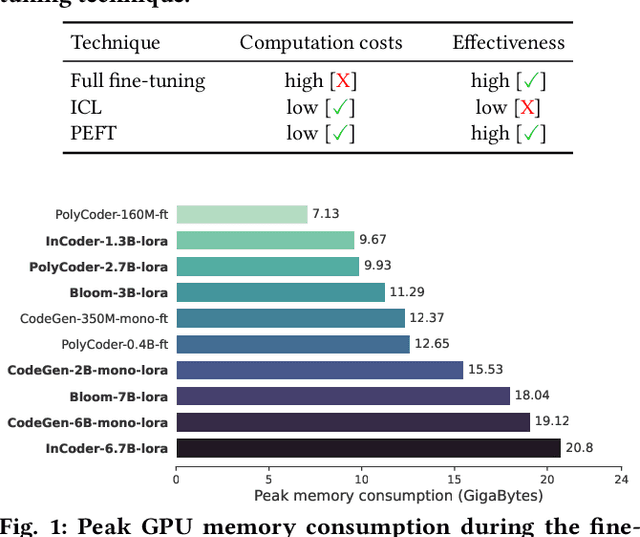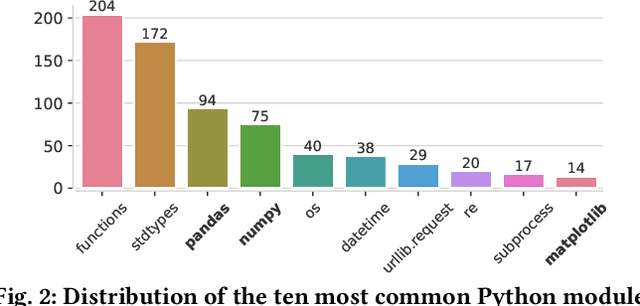Exploring Parameter-Efficient Fine-Tuning Techniques for Code Generation with Large Language Models
Paper and Code
Aug 21, 2023



Large Language Models (LLMs) possess impressive capabilities to generate meaningful code snippets given natural language intents in zero-shot, i.e., without the need for specific fine-tuning. In the perspective of unleashing their full potential, prior work has demonstrated the benefits of fine-tuning the models to task-specific data. However, fine-tuning process demands heavy computational costs and is intractable when resources are scarce, especially for models with billions of parameters. In light of these challenges, previous studies explored In-Context Learning (ICL) as an effective strategy to generate contextually appropriate code without fine-tuning. However, it operates at inference time and does not involve learning task-specific parameters, potentially limiting the model's performance on downstream tasks. In this context, we foresee that Parameter-Efficient Fine-Tuning (PEFT) techniques carry a high potential for efficiently specializing LLMs to task-specific data. In this paper, we deliver a comprehensive study of LLMs with the impact of PEFT techniques under the automated code generation scenario. Our experimental results reveal the superiority and potential of such techniques over ICL on a wide range of LLMs in reducing the computational burden and improving performance. Therefore, the study opens opportunities for broader applications of PEFT in software engineering scenarios.
 Add to Chrome
Add to Chrome Add to Firefox
Add to Firefox Add to Edge
Add to Edge